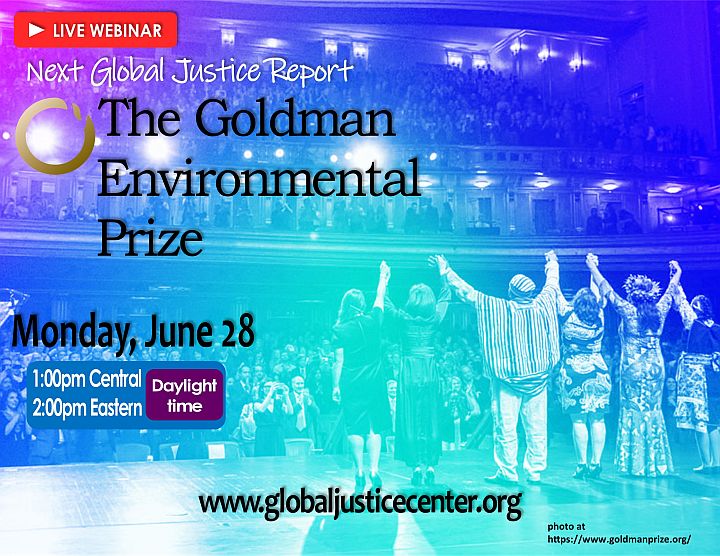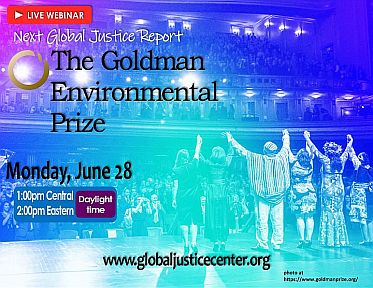Talk: Goldman Environmental Prize [] Center for Global Justice
Event Category: Presentations/Discussions
-
Monday, June 28, 20211:00pm CDT – 2:00pm EDT
Goldman Environmental Prize
The fire and hope that sustained the courageous women and men who won this year’s Goldman Environmental Prize is inspiring. The Prize is the world’s first and largest award honoring grassroots environmental activists. It was founded by Richard and Rhoda Goldman in San Francisco in 1989. These annual awards go to six environmental defenders from Africa, Asia, Europe, Pacific & Island Nations, North America, and South & Central America. Often these women and men are from isolated villages or inner cities where they choose to take great personal risks to safeguard the environment. The Goldman Prize recipients focus on protecting endangered ecosystems and species, combating destructive development projects such as mining and dams. Each of them has a compelling story in which they fought against corporate giants. Their actions, courage and compassion are inspiring to those who love our planet. They are ordinary women and men acting in extraordinary ways to protect the environment and their communities. Last year there were 331 of them who were killed, half in Columbia.
We will see short videos about the work of each recipient as well as their award ceremonies starting with Leydy Pech, an indigenous Mayan beekeeper, one of last year’s winners. She led a coalition that successfully halted Monsanto’s planting of genetically modified soybeans in southern Mexico. The Mexican Supreme Court ruled that the government violated the Mayans’ constitutional rights and suspended the planting of genetically modified soybeans. Because of the persistence of Pech and her coalition, in September 2017, Mexico’s Food and Agricultural Service revoked Monsanto’s permit to grow genetically modified soybeans in seven states.
Then we look at this year’s winners.

What we do The Center engages in local community support and outreach to promote and advance initiatives and movements toward social justice, grassroots empowerment and democracy, and environmental sustainability. It is also devoted to critical analysis of the processes and impacts of globalization, both local and international. The Center works to develop alternative socio-economic systems that conserve and share the world’s cultural, economic, and environmental resources for the benefit of humankind.
-
-


